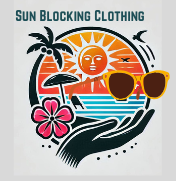What bout “5 Sun Exposure Risks for People with Darker Skin Tone” and those with so-called olive-tone skin? Are there different safety rules for them? We don’t sunburn very easily so shouldn’t worry about skin cancer, right?

Excess sun exposure is a real issue for all of us. Different skin tones make you have different danger levels. Do you know your risk from the sun?
# 1 Sunburn Dangers for People with Darker Tone Skin
Let’s start with sunburn as it produces more immediate issues. These immediate issues include heat exhaustion and heat stroke, as well as temperature and surface skin damage.
Heat can build up in your body. This can become trouble quickly with too much sun.
The biggest danger for darker people’s skin is the delay in turning red quickly, or at all. These people think that their skin is OK, and protection from the sun isn’t important for them. There are serious sun dangers to protect yourself from.
Have you considered the basis of color protection? Darker colors absorb the sun’s rays, and lighter reflect? So people who have darker tone skin can begin to heat their internal temperatures after a short time in the sun.
This brings the risk of elevated heat exhaustion and heat stroke.
Darker skin tones do have more melanin to protect against sun damage. This does protect, unless you have areas on your skin surface that have less melanin. By being slower to sunburn, you may expose your skin too long and too often, all the while thinking you are being safe.
# 2 Skin Cancer In Darker Skin Tone People
Yes, those with darker skin tones do get skin cancer. Yes, they have a lower risk, but with repeated sun exposure, and sunburn risk, the risk increases.
As people with darker skin tones get older, the risk of skin cancer grows as well. The risk is not as high of a risk as for fair-skin people. Please don’t use this fact as an excuse to just ignore how long you are in the sun.
Due to the fact that the skin is darker, the skin cancer is less visible. This fact alone allows skin cancer to have more time to develop and become life-threatening. Melanoma is the most deadly of skin cancers. And Melanoma is a skin cancer found more often in darker tone skin people.

# 3 Premature Aging
Sun exposure will eventually break down the collagen and elastin in your skin. This will begin the wrinkling, allowing your skin to sag. Those fine lines and the loss of skin tone and other signs of premature aging. They are all just waiting to show up.
Wear a sun hat, sunglasses, and your sun blocking shirt, and use sunscreen. If you have darker tone skin, you are aware of how dryness can affect the luster of your skin. This gives a drab and grey tone that calls attention to the results of early aging.
Another danger for darker skin tones is increasing uneven skin color. This often is a result of too much sun. The skin has a difficult time remaining healthy and smooth and attractive when exposed to too much sun.
Tanning is not recommended for any kind of skin. Tanning is allowing the sun to damage your skin. This is not how you can protect your skin.
# 4 Eye Danger Risk For People with Darker Skin Tones
Like the other risks that you have when you have darker tone skin, your eyes are vulnerable. This is a danger regardless of skin tone. Darker tone skin individuals tend to get careless about sun exposure because they can stay out longer without sunburn.
Some evidence suggests that people with darker skin tones may benefit from the fact that extra melanin in their skin reduces reflections. These results are being evaluated as to how the health of the skin is affected. Lighter skin will reflect the sun’s rays.
There is some evidence to suggest that people with darker skin tones may benefit from more melanin. However, findings also suggest that the time out in the sun for their unprotected eyes was relevant to the damage the sun would do. So wearing your sunglasses and a sun hat is suggested.
Melanin, the pigment that gives color to the skin, hair, and eyes, is present in higher concentrations in people with darker skin.
This extra melanin can help protect the eyes from harmful ultraviolet (UV) radiation from the sun.
You may be able to stay in the sun longer than I can, but you will reach your limit at some point. Overexposure to these UV rays will lead to eye damage such as cataracts, macular degeneration, and skin cancer on the eyelids.
Adding regular wearing of sunglasses and a hat with a brim can provide additional protection from the sun’s harmful rays. Regular eye exams are recommended to detect any potential eye problems early on.
If sun damage starts to occur to your actual eye’s surface, your check-ups will allow you to get it treated early, before damage occurs on the eye surface.
# 5 Vitamin D Deficiency
Finding the right balance for the color of your skin is important. You need vitamin D to stay healthy. Too much sun and your skin will let you know. Any tone of skin has this balance to find. I know that my skin will start turning red in 20 minutes. What is your safe time in the sun?
Balancing sun exposure for your vitamin D protection is an easy fix, as long as you are aware that you are within a safe time limit.
In another finding, there is recent evidence that darker skin toned individuals are better able to process vitamin D than lighter-skinned individuals. This may mean that there is a lower threshold of sufficiency.
Summary of Dangers and Risks and the Why
Overall, people with darker skin tones have less risk from the sun. Their risk comes with overexposure. Long hours and many days of sun exposure will find most of us with skin damage. However, fairer skin individuals will have damage before darker skin individuals do.
Of the risks discussed here, they are all important. However, it is skin cancer that still poses the most direct threat. The fact that in darker skin it is more difficult to see makes it often more advanced when detected, and more life-threatening.
Don’t disregard the risks and go overboard exposing your skin to the sun. Each of us is different and we are susceptible to different risks. Is there a family history of skin cancer?
Your lifestyle is also important to consider. Are you in the direct sun many hours a day, day after day? All seasons of the year?
Heat exhaustion, along with heat stroke can be particularly dangerous for people with darker skin. This is especially true in hot and humid climates where the body may have difficulty regulating temperature. Or if one is working in a physical way out in the elements.
Dehydration and other heat-related illnesses can set in quickly. These can become life-threatening.
Overall, excess sun exposure can damage skin that is darker toned in many of the same ways it can damage lighter skin. Just because it is less noticeable or has different health consequences, you should not ignore the damage.
Therefore, it is important for everyone to protect their skin from the sun’s harmful rays by wearing protective clothing, seeking shade, and using sunscreen.
It’s also important to note that people with darker skin may not always notice the signs of sun damage, such as redness or peeling, as easily as those with lighter skin.
Skin Conditions the Sun Usually Makes Worse for Dark Color Skin.
Several skin disorders are more common in people with darker skin tones. Sun exposure can make these conditions worse. Some of these skin disorders that can be aggravated by sun exposure include:
- Acne: a common skin condition that can be more noticeable on darker skin tones. Sun exposure can cause acne to worsen by leading to increased oil production in the skin.
- Hyperpigmentation: a condition in which areas of the skin become darker than the surrounding skin. This can occur due to sun exposure, hormonal changes, and certain medications. Hyperpigmentation can be made worse because of increased melanin in the sun-exposed skin.
- Melasma: a type of hyperpigmentation that is most common in women. Usually triggered by hormonal changes, such as pregnancy or the use of birth control pills. Sun exposure can increase melasma, again by increasing melanin in the affected areas.
- Eczema: a skin condition that causes itching, redness, and dryness of the skin. Sun exposure can worsen eczema symptoms because it can increase inflammation in the skin.
- Psoriasis: a chronic skin condition that causes red, scaly patches on the skin. Sun exposure can make psoriasis worse by triggering a flare-up of symptoms.
Take extra precautions to protect your skin from the sun, if you have one of these conditions.
This includes wearing protective clothing, seeking shade during peak sun hours, and using sunscreen regularly.
Working with a dermatologist to develop a treatment plan is important. Getting a treatment plan that addresses both the underlying skin disorder and any sun-related aggravating factors will give you healthier skin.
Sami’s Take On 7 Risks Kids Face from the Sun “Just Because They Are Kids.”
There is one more risk, that parents need to keep in mind that can make their kids at higher risk for sun damage. Medication
Check the labels of the medications your kids need. Make sure they are not on the list to raise your kid’s risks.
List of drugs for young kids’ parents:
- Antihistamines: These are medicines that help with allergies and allergic reactions.
- Coal Tar and Derivatives: These are medicines that treat skin conditions such as eczema and psoriasis.
- Contraceptives, Oral, and Estrogens: Medicines used to prevent pregnancy and treat certain medical conditions.
- Non-steroidal Anti-Inflammatory Drugs: These are medicines used to relieve pain and reduce inflammation, but should only be given under the supervision of a doctor.
- Phenothiazines: These are medicines used to treat mental health conditions such as schizophrenia.
- Psoralens: These are medicines used to treat skin conditions such as vitiligo.
- Sulfonamides: These are antibiotics used to treat bacterial infections.
- Sulfonylureas: These are medicines used to treat diabetes.
- Thiazide Diuretics: These are medicines used to treat high blood pressure and heart failure.
- Tetracyclines: These are antibiotics used to treat bacterial infections.
- Tricyclic Antidepressants: These are medicines used to treat depression, but should only be given under the supervision of a doctor.
It’s important to always consult with a healthcare professional before giving any medication to your child, as they can advise you on the proper dosage and potential side effects.
Thank you,
Sami
Sources
https://en.wikipedia.org/wiki/Dark_skin
Skin Cancer.org
